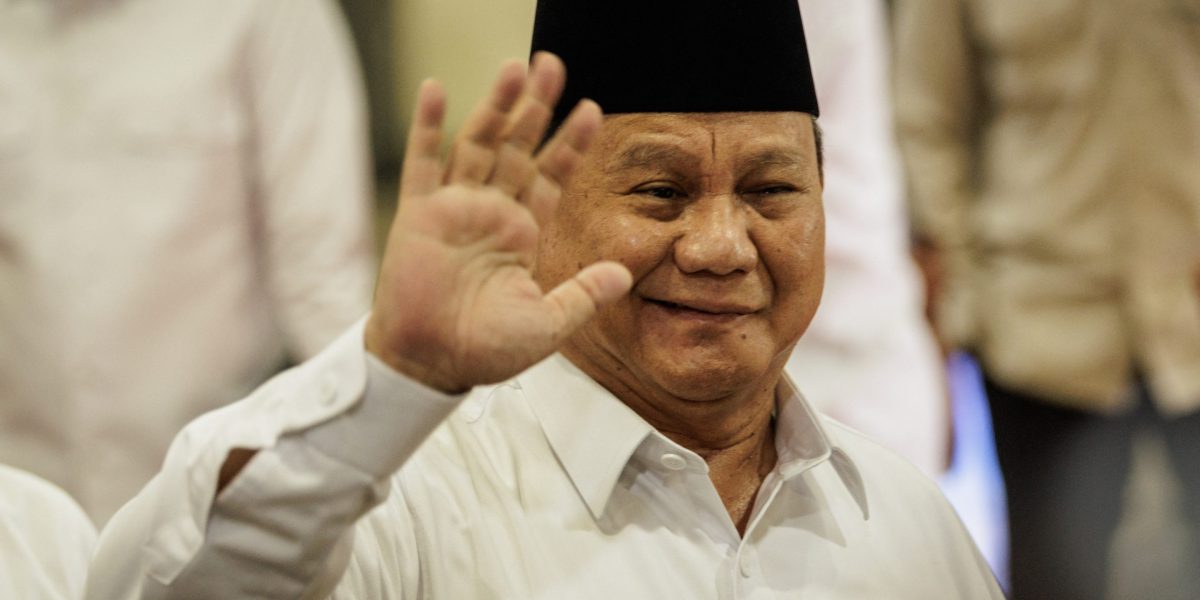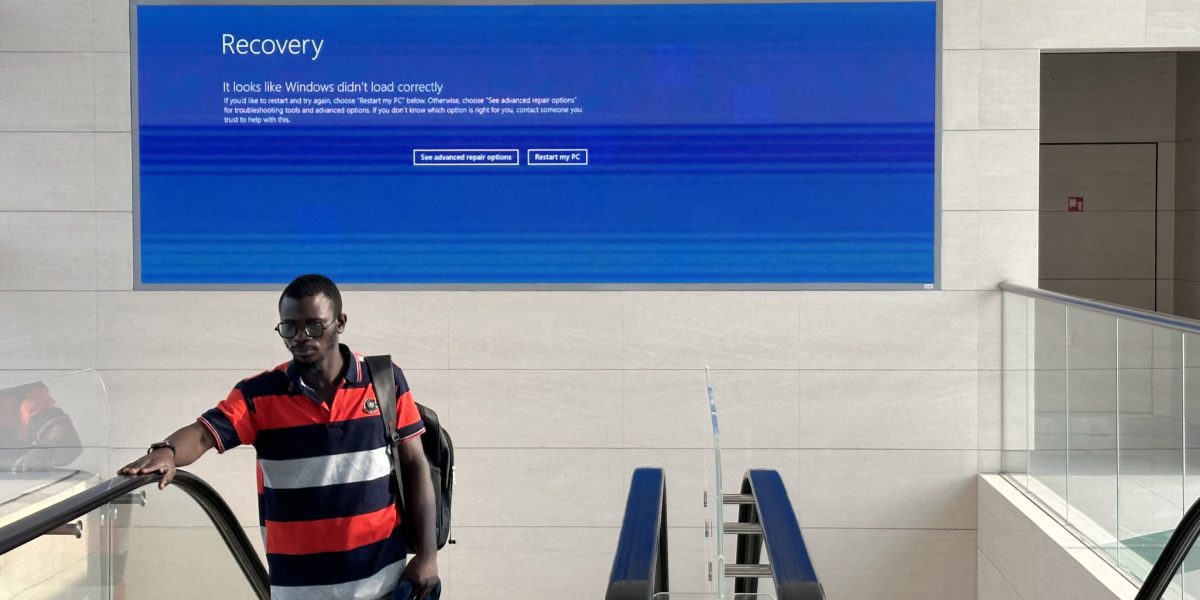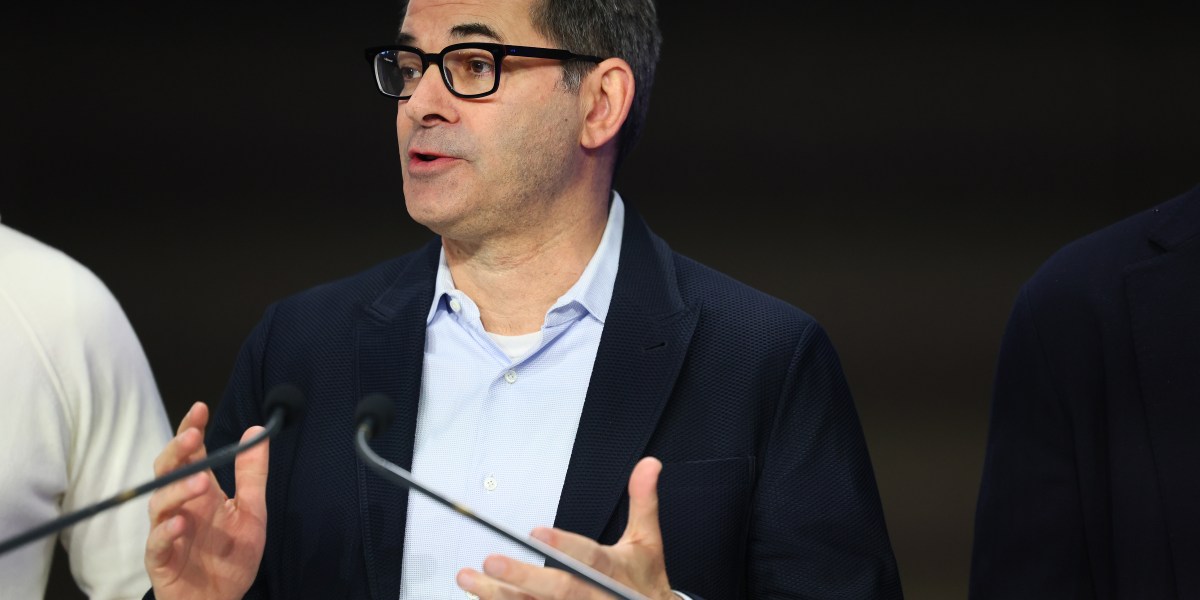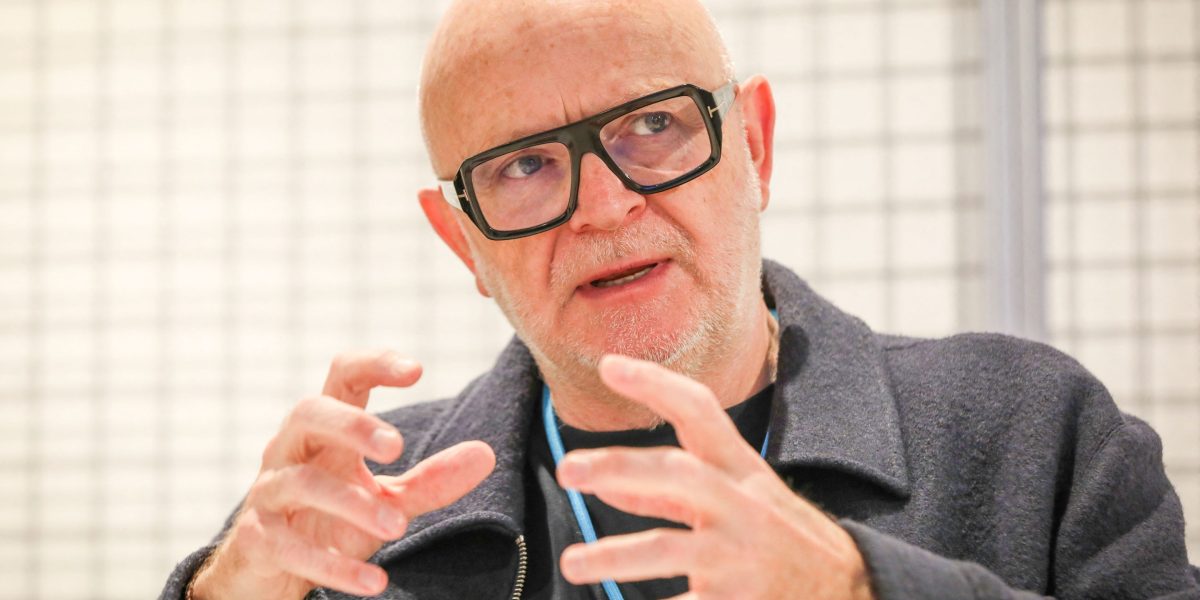For months, President Prabowo Subianto’s moves to chip away at Indonesia’s long-established economic guardrails have stoked anxiety in markets. This week’s sudden rout suggests investor patience is wearing thin.
The ex-general has been causing unease with his populist spending measures, plans to dilute the central bank’s independence and aggressive policies against foreign businesses like Apple Inc. He fast-tracked laws to expand the role of the military too, triggering angry student protests in Jakarta.
The tipping point came on Tuesday, when rumors that finance minister Sri Mulyani Indrawati, who has kept a tight rein on spending during her cumulative 14 years in office, would resign. The stock market dropped the most in three years on the day, prompting government officials and Indrawati herself to come out, one by one, to dispel the speculation. Bank Indonesia was forced to step in to protect the rupiah, Asia’s worst performing currency this year.
The rumors have “renewed fears of reformists being purged and was a catalyst for exposing all the economic problems the country is facing,” said John Foo, founder of Valverde Investment Partners Pte.
While there’s been some reprieve in the markets since then, investors remain rattled by Prabowo’s policy moves, coming at a time when Southeast Asia’s biggest economy is also grappling with U.S. President Donald Trump’s tariff threats and waning demand from China for raw materials.
Top of mind for investors is the fiscal outlook. Once cited by Morgan Stanley as one of the “Fragile Five” markets prone to wild swings in foreign sentiment, Indonesia has steadily improved its credibility to investors thanks to prudent economic management that’s lifted its credit rating out of junk status.
Prabowo, 73, is now threatening to upend that trajectory. His policy steps since taking office in October could push the budget deficit closer to its legal limit of 3% of gross domestic product. He increased his cabinet to more than 100 from around 60 under his predecessor Joko Widodo. After a public outcry, he backtracked on hiking the value-added tax rate, a move which would’ve boosted government revenue.
He implemented a free lunch program for students—a signature campaign pledge—that will cost $30 billion a year, the equivalent of 14% of Indonesia’s entire 2024 budget. To pay for that, he slashed spending in other areas, like infrastructure projects and travel.
“People in the markets are concerned about economic policy making,” said Achmad Sukarsono, lead analyst for Indonesia at Control Risks. “They have seen that many policies—let’s just say—do not have sound economic grounding.”
Prabowo’s office didn’t immediately respond to a request for comment.
‘Wake-up call’
The government delayed releasing monthly budget data for January, leading investors to question the state of the government’s finances. The figures were finally published last week, showing a surprise deficit as both revenues and expenditures plunged.
None of that bodes well for Prabowo’s biggest pledge of all: boosting economic growth to 8%. Analysts say that goal is unrealistic, with the market consensus closer to 5% growth this year.
“The president remains focused on fulfilling his populist campaign promises, which require efficient execution,” said Aditya Perdana, a political lecturer at the University of Indonesia, describing the effort as uneven and selective. “From a political perspective, this should serve as a wake-up call for the government to adjust its course before losing further credibility.”
Prabowo’s creation of a sovereign wealth fund, Danantara, is another source of concern. The fund will take control of the nation’s state-owned enterprises and have a sweeping mandate to invest across industries. The government will channel $20 billion from the existing budget into the fund, which will be run by business-savvy allies and report directly to the president.
Authoritarian past
Prabowo’s actions appear in many ways to be at odds with the very institutions put in place to win the faith of voters and investors after the downfall of former dictator Suharto, who ruled Indonesia for three decades until his ouster amid street protests in the late 1990s.
His allies in parliament, for example, moved swiftly to pass a controversial law to expand the role of the military, despite public criticism that the changes are reminiscent of the Southeast Asian nation’s authoritarian past. Thousands of students took to the street in the capital on Thursday, throwing stones, spray-painting walls and setting tires ablaze as they demanded lawmakers reverse the changes, according to local reports.
Market reaction to the law’s passage indicates a cautious approach from investors reflecting concerns “about potential shifts in Indonesia’s democratic trajectory and governance structures,” said SGMC Capital Pte Ltd senior partner Mohit Mirpuri.
“We believe this could provide some uncertainty in the market,” Citigroup Inc. analyst Ferry Wong said of the protests.
Lawmakers have also been talking about potentially expanding the mandate of the central bank. That renewed investor concerns about Bank Indonesia’s independence after an earlier draft of the financial sector omnibus law added job creation to the central bank’s objectives. Governor Perry Warjiyo said this week the rule changes would only “emphasize,” but not fundamentally change its current goals.
To be sure, none of this appears to pose any imminent threat to Prabowo, who enjoys an overwhelming parliamentary majority, while the country’s sole opposition party is still seen lending legislative support on matters like the military law. State revenues are also poised to see a turnaround in March, Indrawati reassured on Tuesday, and the government has pledged to maintain its budget deficit at 2.5% of GDP this year, well within the legal limit.
It remains to be seen whether those assurances will be enough to ease investor concerns.
“This is a clear warning, and we must prevent the situation from deteriorating further,” said Perdana of the University of Indonesia. “While some corrective measures have been introduced, poor implementation remains a critical issue.”
This story was originally featured on Fortune.com
Source link

 Entertainment8 years ago
Entertainment8 years ago
 Politics8 years ago
Politics8 years ago
 Entertainment8 years ago
Entertainment8 years ago
 Entertainment8 years ago
Entertainment8 years ago
 Tech8 years ago
Tech8 years ago
 Tech8 years ago
Tech8 years ago
 Tech8 years ago
Tech8 years ago
 Politics8 years ago
Politics8 years ago







